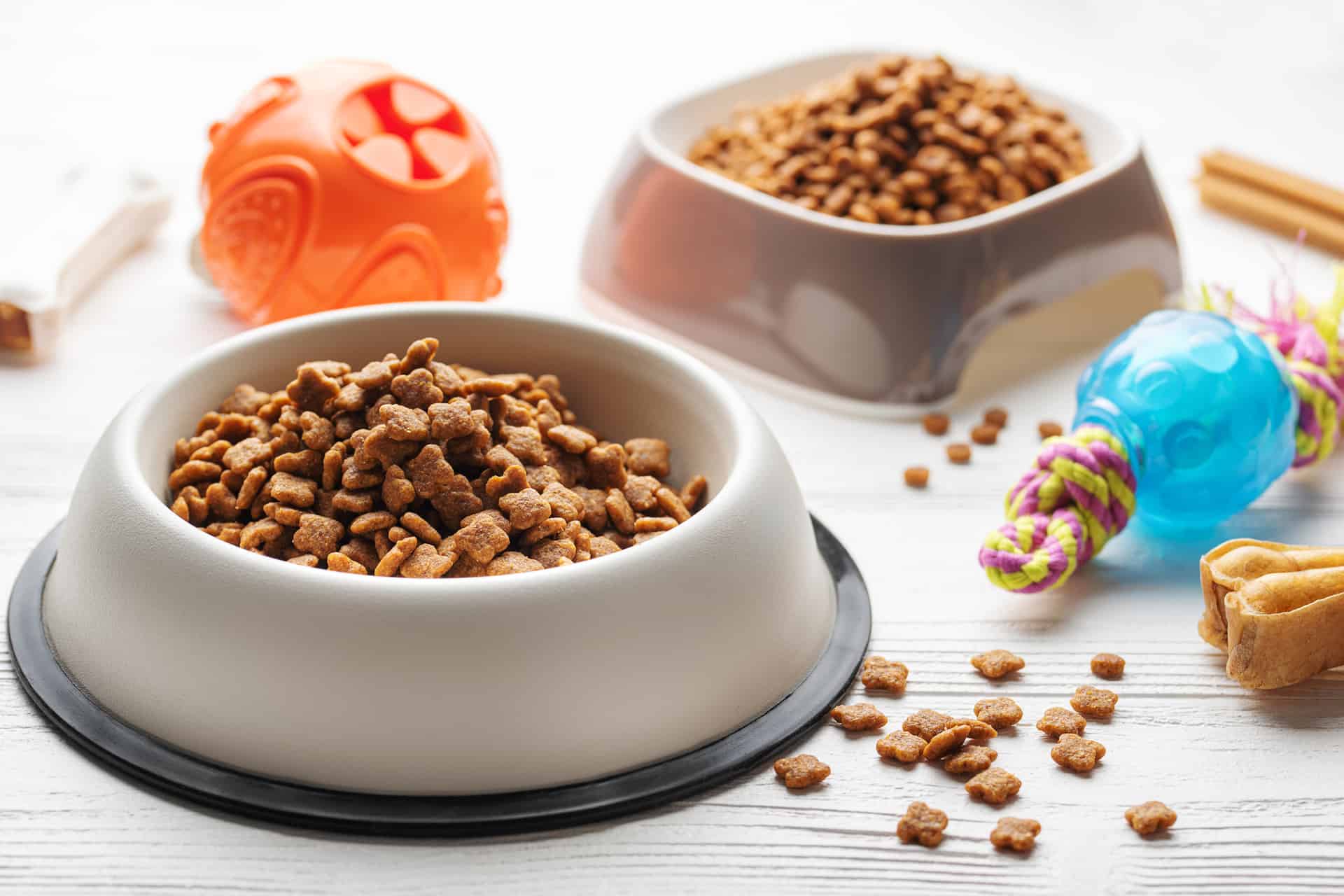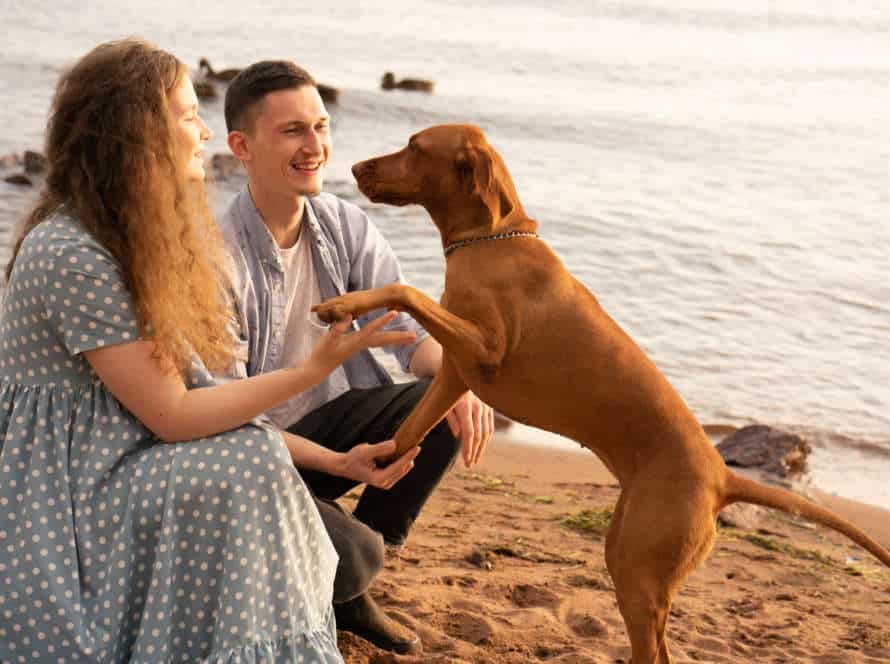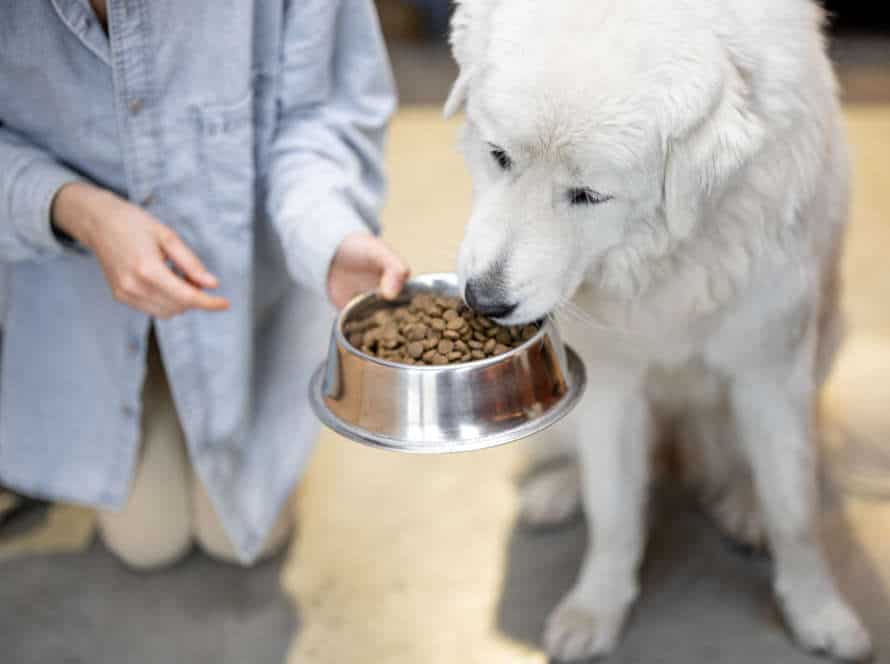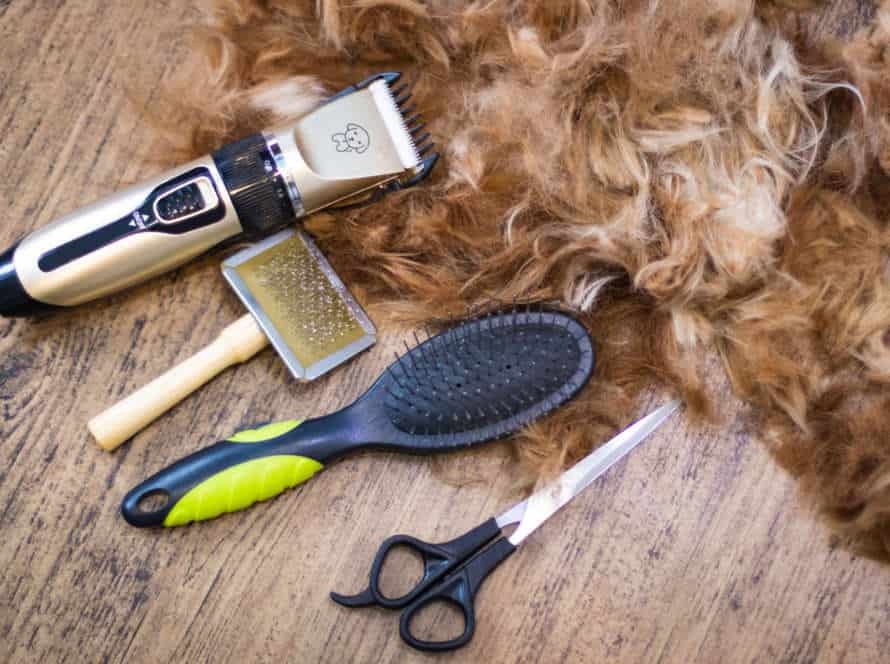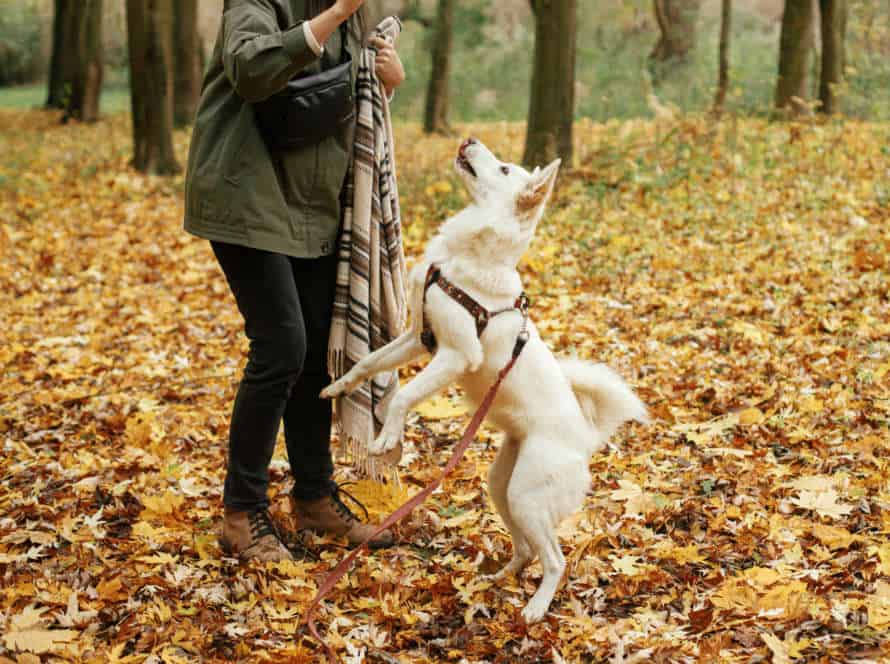Ensuring Proper Nutrition for Your Senior Dog
As your pup ages, it’s important to give them the right nutrition. To make sure they stay healthy and happy, try these tips:
- Feed them high-quality senior dog food that has the right balance of proteins, fats and carbs.
- Watch their calorie intake and adjust as needed to avoid weight gain or loss.
- Give them supplements like omega-3s, glucosamine and chondroitin to help joints.
- Instead of unhealthy snacks, give them fresh treats like carrots or blueberries.
- Consult your vet for a personalized nutrition plan.
The key to a healthy senior dog is proper nutrition!
Understanding Your Senior Dog’s Nutritional Needs
Your pup’s nutriment requirements switch as they age. You must fathom these changes and how to give their diet the proper nutrition. This article will tell you how to make sure your aged pooch has a balanced diet with their required nutrients.
Changes in metabolism and dietary requirements
As dogs age, their metabolism and dietary needs change. It is essential to understand these changes and adjust their diet. Here are some common metabolic and dietary changes for senior dogs:
- Decreased metabolism: Metabolism slows down, making weight gain easier. Reduce their calories and provide high-quality protein.
- Digestive issues: Seniors may experience constipation or diarrhea. Offer easy-to-digest food high in fiber and moisture.
- Joint problems: Arthritis is common in older dogs. Feed them food with anti-inflammatory elements such as glucosamine and chondroitin.
Pro Tip: Consult with a vet to create a personalized diet plan for your senior dog’s specific needs.
Importance of choosing high-quality, nutrient-dense foods
High-quality, nutrient-dense foods are key for senior dogs’ nutrition and quality of life.
These dogs have different needs than younger ones. They need food that is easy to digest and rich in vitamins and minerals.
Protein is a must as it helps maintain muscle mass. Antioxidants can boost the immune system and prevent cognitive decline.
Choose food with natural ingredients and no artificial additives or preservatives.
Pro-tip: Consult your vet before making any changes to your senior dog’s diet. They can provide expert guidance on the right foods and portions.
Common nutritional deficiencies in senior dogs
As dogs age, their bodies transform. Nutrient absorption decreases, making it vital for senior dog owners to understand their pup’s nutritional needs. Here are the most common deficiencies in mature canines:
- Protein – Senior dogs need more to keep muscle mass and avoid muscle wasting.
- Fatty Acids – Omega-3 and Omega-6 are important for healthy skin & coat, joint health, and brain function.
- Fiber – Necessary for good digestion and to prevent constipation.
- Vitamins & Minerals – Elderly dogs require higher levels of B vitamins, Vitamin D, and calcium for a healthy body.
Speak to your vet about your senior dog’s nutrition. Consider age-specific food formulas or supplements for happy, healthy golden years!
Recommended Diet for Senior Dogs
Senior dogs need proper nutrition to keep them healthy and lively. A balanced diet is essential for them. Let’s explore the suggested diet for senior dogs. We must consider various factors to ensure they get the correct nutrition.
Protein requirements and importance
As senior dogs age, their protein needs change. It’s essential to ensure they get proper nutrition for health and vitality. Protein is key, as it supplies the building blocks for tissue repair, muscle maintenance, and immune function.
Senior dogs need more protein than adult dogs. It should come from high-quality animal proteins that are easy to digest. When picking dog food, look at the labels. Select products with at least 25% protein.
Protein needs vary depending on breed, activity level, and overall health. Ask your vet to figure out the right amount of protein for your senior dog.
Older dogs may also benefit from protein supplements, like fish oil or glucosamine. These help support joint health and mobility.
Choosing the right type of protein
Choosing the right type of protein is essential for your senior dog’s nutrition. As dogs age, their dietary needs change. They require more protein for strong and healthy muscles. Not all proteins are the same, so select high-quality sources that are easy to digest.
Here are some recommended protein sources for senior dogs:
- Chicken: Lean and easily digestible; provides essential amino acids for muscle maintenance and repair.
- Fish: Rich in omega-3 fatty acids; supports joint health and cognitive function.
- Eggs: Complete protein source with essential amino acids, vitamins, and minerals for overall health.
- Beef: High levels of iron and zinc for optimal immune function.
- Lamb: Rich in essential fatty acids; promotes healthy skin and coat.
Consult with your vet to determine the best protein sources and diet plan for your senior dog’s needs.
Appropriate fat content for senior dogs
Selecting the right fat content for elderly canines is key to making sure they stay hale and hearty. As dogs age, their metabolic rate slows and they are less active, meaning they require fewer calories to preserve their weight. A moderate fat intake is perfect for elder pooches.
Here’s the 411:
- Senior doggos should be provided a nourishing diet that is easily digestible.
- Fat content in their grub should not exceed 10-12%.
- High-fat diets can result in corpulence, which can then lead to health issues in senior pups like joint discomfort and cardiac illness.
- Pick quality dog food from trustworthy sources that is rich in protein and fiber for ultimate health and nutrition perks.
Special Dietary Considerations for Senior Dogs
When it comes to a healthy diet for senior dogs, there are some dietary considerations. Aging affects the body’s ability to absorb and use nutrients. So, it is important to give your older dog the essential nutrients for their age and breed. In this section, let’s talk about the special dietary needs for aging dogs.
Foods to avoid
As our furry friends age, their eating needs change. Careful thought is needed to make sure they stay healthy. Here are a few meals to dodge when feeding aged doggos:
- Raw meat and eggs: These can have germs that can make senior pooches who have weak immune systems ill.
- High-fat foods: Senior doggies have slower metabolisms, so their weight could increase and they may get tummy troubles from these edibles.
- Foods with added sugars: These could lead to being overweight, teeth problems, and diabetes in elderly canines.
- Dairy products: These aren’t always bad, but senior doggies may struggle with digesting lactose and this could cause belly troubles.
- Processed foods: These often have too much salt and preservatives that are bad for senior pups.
Hint: Always ask your vet to guarantee your senior pup is getting the right nutrition for their age and health.
Foods to supplement with
As your pups age, they may need special diets. For example, include high-quality proteins, like chicken, beef, and fish. This helps with muscle mass and strength. Fiber is also important for digestion and weight management. Sources of fiber are sweet potatoes, pumpkin, and green beans. Omega-3 fatty acids are great for brain and heart health. Get them from fish, flaxseed, and chia seeds. Calcium and phosphorus make bones and teeth strong. Get those from yogurt, cheese, and eggs. Ask your vet before you give your pup any new food or supplements. That way, their diet meets their needs.
Common medical conditions requiring dietary adjustments
As dogs age, they are more prone to medical conditions that need diet changes. Some of these conditions are obesity, diabetes, kidney disease, liver disease, and heart disease.
It’s important to give senior dogs proper nutrition for a healthy weight and to reduce age-related illnesses. This includes balancing protein, fat, and carbs. Choose high-quality proteins that are easy to digest and avoid inflammatory ingredients.
A vet can give advice on a tailored diet plan based on an individual dog’s needs and condition.
Pro Tip: Regular vet checkups are essential for a senior dog’s health, including their nutrition.
Feeding Your Senior Dog
It’s vital to ensure your old pup gets the correct nutrition. As he ages, his calorie requirements may alter and his capability to absorb nutrients could decrease. Giving your senior dog the correct food and amount can help keep him healthy. Here are some helpful tips for giving your senior dog the nutrition he needs:
Recommended feeding frequency and portion sizes
Feeding your senior pooch is key to making sure they get the optimal health and nutrition they need. It depends on the breed, size, activity level and overall health.
Generally, senior dogs need less calories due to a lower activity level and metabolic rate. So, 4-6 meals a day is recommended for them.
Get a kitchen scale or measuring cup to measure portion sizes. Ask your vet to suggest the right portion size and feeding frequency for your senior pup, as well as any extra supplements they may need.
Pro tip: Exercise and nutrition is the best way to keep your senior dog healthy and happy!
Transitioning to a new diet
Switching your elderly pup’s diet calls for a careful and planned approach. Make sure they get the right nutrition! Here are some tips:
- Start slowly by mixing in the new food with their current one.
- Observe their behavior, appetite, and digestion during the transition.
- Over a few weeks, increase the proportion of the new food until it’s their whole diet.
Senior dogs need different nutrition than younger ones. Look for high-quality protein, easy-to-digest carbs, and vitamins/minerals.
Pro tip: Ask your vet before making any big changes.
Monitoring your dog’s weight and adjusting diet as needed
As your dog ages, their dietary needs change. It’s essential to watch their weight and change their meals. Here are some tips for feeding your senior pup:
- Keep tabs on their weight. Weigh them regularly or just see if they look healthy. If they are gaining weight, it’s time to change their diet.
- Pick the right food. Look for food made for senior dogs. It has less calories, more fiber and proteins that are easier to digest.
- Give smaller meals. Senior dogs need fewer calories. Feed them twice or thrice a day instead of one big meal.
- Check out dietary supplements. Ask your vet if they need glucosamine and chondroitin. These help with joint health.
By monitoring their weight and adjusting their diet, you can help your canine pal live a long and healthy life in their senior years.
Choosing the Right Food for Your Senior Dog
Pets in their senior years need special nutrition! Look for food with omega-3 fatty acids, antioxidants and other vitamins. These are important for your pup’s health. Here are the best foods for older dogs:
Reading dog food labels and understanding ingredient lists
Reading dog food labels can help your senior pup get the right nutrition.
Here are tips to help you:
- Look for named animal proteins as the 1st ingredient (e.g. beef, chicken, fish).
- Avoid fillers like corn or wheat.
- Dogs need carbs, so opt for whole food ingredients (sweet potatoes, peas, etc.).
- Choose real meat, not byproducts or meals.
- Check the guaranteed analysis to see the protein & fat percentages.
Lastely, always talk to your vet before changing your pup’s diet. They’ll help you find the right balance for their needs.
Choosing between dry, wet, and raw diets
Your pup’s nutritional needs shift as they age. To ensure your senior dog is getting the right food, you must think carefully about the options. These include dry, wet, and raw diets.
Dry food is the most typical. It’s easy to store, measure, and feed, plus it’s affordable. Some varieties are tailored for older dogs.
Wet food has more moisture and is tastier to some canines. It can help seniors who have trouble chewing or dental issues.
Raw food is a mix of uncooked meat, bones, fruit, and veggies. It can be useful for senior pooches with health concerns. But, you must prepare it safely and make sure it meets their nutrition needs.
To pick the right food for your senior dog, chat with your vet and think about their individual needs. This way, they’ll get the nourishment they need to support their elderly body.
Consulting with a veterinarian or veterinary nutritionist for individualized recommendations
When it comes to your senior dog’s nutrition, consulting with a vet or veterinary nutritionist is key. Here’s why: As canines age, their nutritional needs differ. They require fewer calories and certain nutrients to stay healthy. A vet or nutritionist can give individualized advice to your senior pup’s specific requirements and health worries, considering things like weight, activity level and total health.
Plus, some elderly dogs may have medical problems that need a special diet, such as kidney disease, diabetes, or food allergies. Working with a veterinary professional can make sure your senior pup gets the right nutrition while managing any medical issues.
So, if you want to select the right food for your elderly four-legged friend, consulting with a vet or veterinary nutritionist is a wise decision.
Frequently Asked Questions
Q: How much should I feed my senior dog?
A: The amount of food your senior dog needs depends on several factors, including breed, weight, and activity level. A good general rule of thumb is to feed your senior dog a high-quality, senior-specific dog food that is formulated with their nutritional needs in mind. Be sure to consult with your veterinarian for specific feeding recommendations.
Q: What should I look for in a senior-specific dog food?
A: When selecting a dog food for your senior dog, look for one that is formulated with your dog’s specific nutritional needs in mind. This may include ingredients that promote joint health, digestive health, and cognitive function. Some senior-specific dog foods also have lower calorie content to accommodate for decreased activity levels.
Q: Can I feed my senior dog table scraps?
A: Feeding your senior dog table scraps is generally not recommended, as it can lead to obesity and other health problems. If you want to give your dog a treat, opt for a small amount of dog-safe human food or a specially formulated dog treat instead.
Q: Does my senior dog need supplements?
A: Whether or not your senior dog needs supplements depends on their specific health needs. Some senior dogs may benefit from joint supplements or probiotics, while others may not require any additional supplementation. Consult with your veterinarian to determine if your dog could benefit from supplements.
Q: How can I help my senior dog maintain a healthy weight?
A: To help your senior dog maintain a healthy weight, feed them a high-quality senior-specific dog food in appropriate amounts. It’s also important to provide regular exercise in the form of short walks or light playtime. Avoid feeding table scraps or high-calorie treats.
Q: What are some signs of malnutrition in senior dogs?
A: Signs of malnutrition in senior dogs may include significant weight loss, decreased energy, and a dull coat. If you suspect your dog may be malnourished, consult with your veterinarian to determine the cause and develop a treatment plan.

